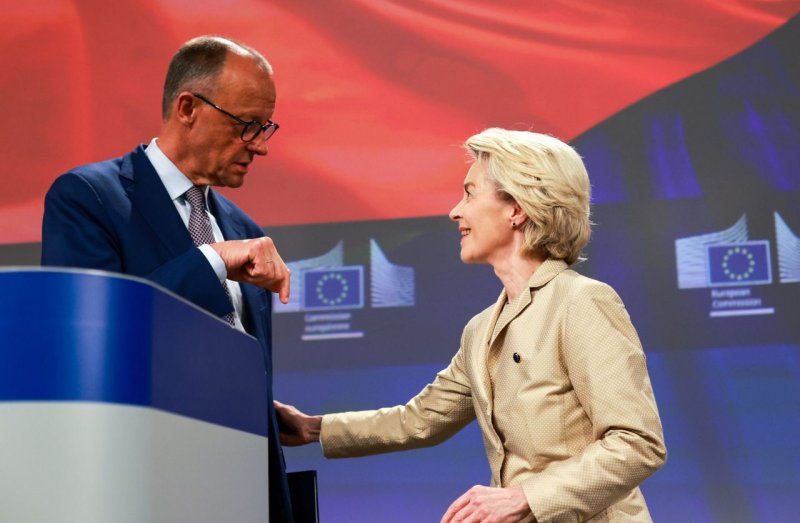
Friedrich Merz has repeatedly emphasized that EU spending must become more efficient instead of increasing the overall pot of cash. | Olivier Hoslet/EPA
The German government has voiced strong opposition to the European Commission’s recently unveiled €1.816 trillion EU budget plan for 2028–2034, calling the proposed spending increase “unacceptable” amid ongoing national budget consolidation efforts.
Stefan Kornelius, spokesperson for Chancellor Friedrich Merz, said Wednesday evening, “A comprehensive increase in the EU budget is unacceptable at a time when all member states are making considerable efforts to consolidate their national budgets. We will therefore not be able to accept the Commission’s proposal,” News.Az reports, citing Politico.
The ambitious proposal by European Commission President Ursula von der Leyen outlines a significant rise in EU spending compared to the current multi-year budget that began in 2021. It also includes three new taxes targeting electric waste, tobacco products, and high-turnover companies—measures aimed at repaying the EU’s post-Covid debt estimated to cost €25 to €30 billion annually.
“We also do not support the additional taxation of companies proposed by the EU Commission,” Kornelius added, emphasizing Berlin’s call for budget efficiency rather than expansion.
Chancellor Merz has repeatedly stressed the need to prioritize and reorganize spending within the EU budget instead of simply increasing the overall financial envelope. “Additional tasks cannot always be linked to additional expenditure … and that is the difficult task we now face,” Merz stated in late June.
The €1.8 trillion budget plan still requires approval from all EU member states and the European Parliament by 2027 before it can take effect.